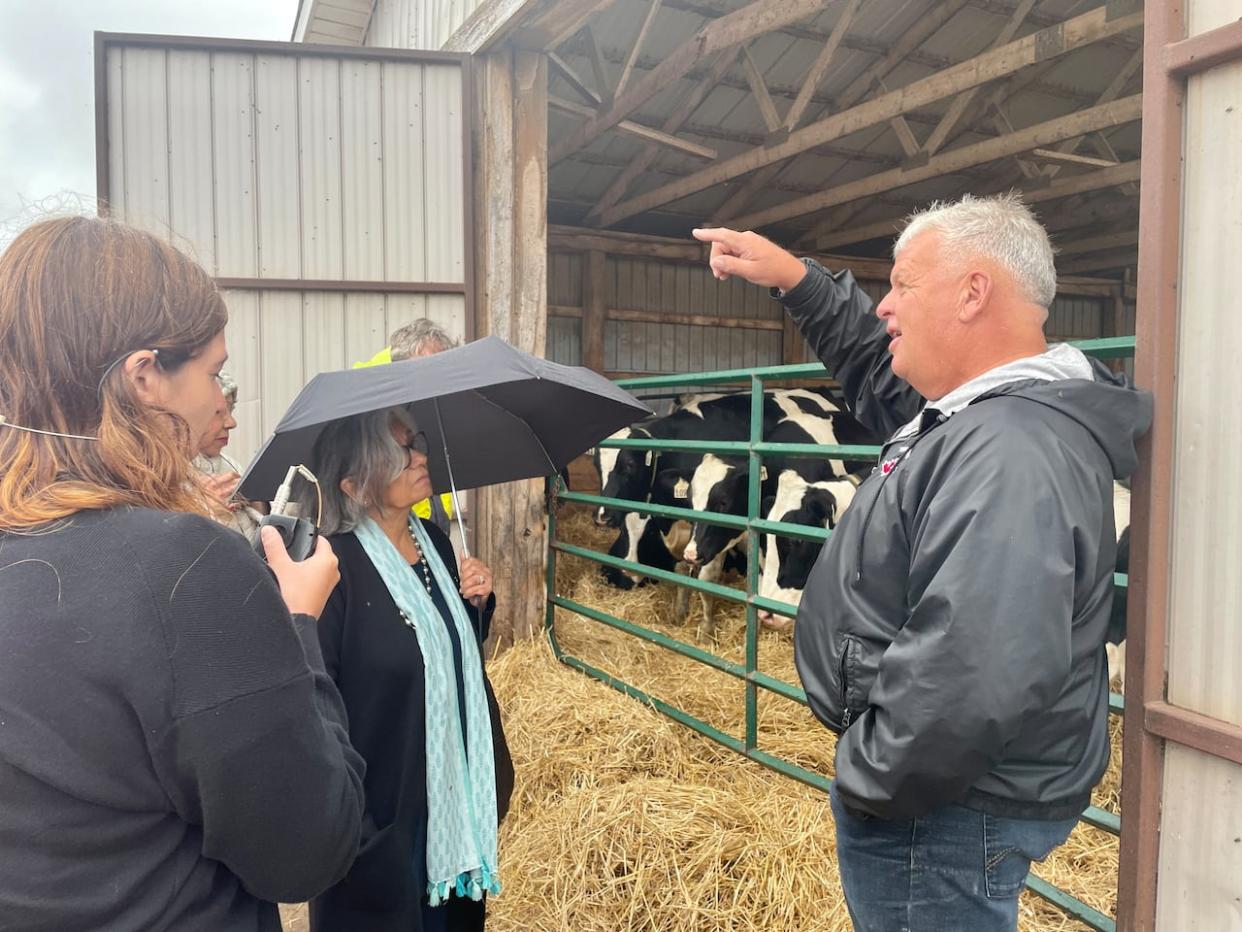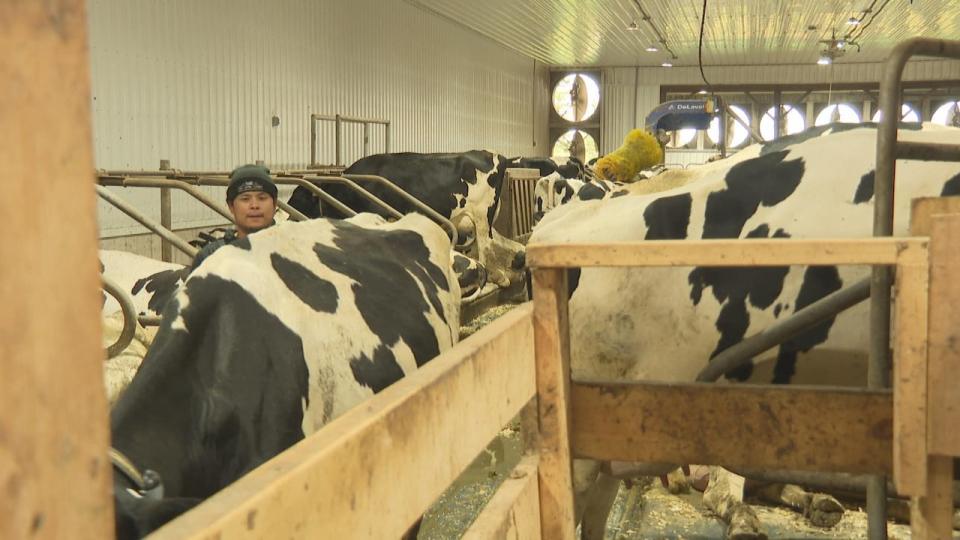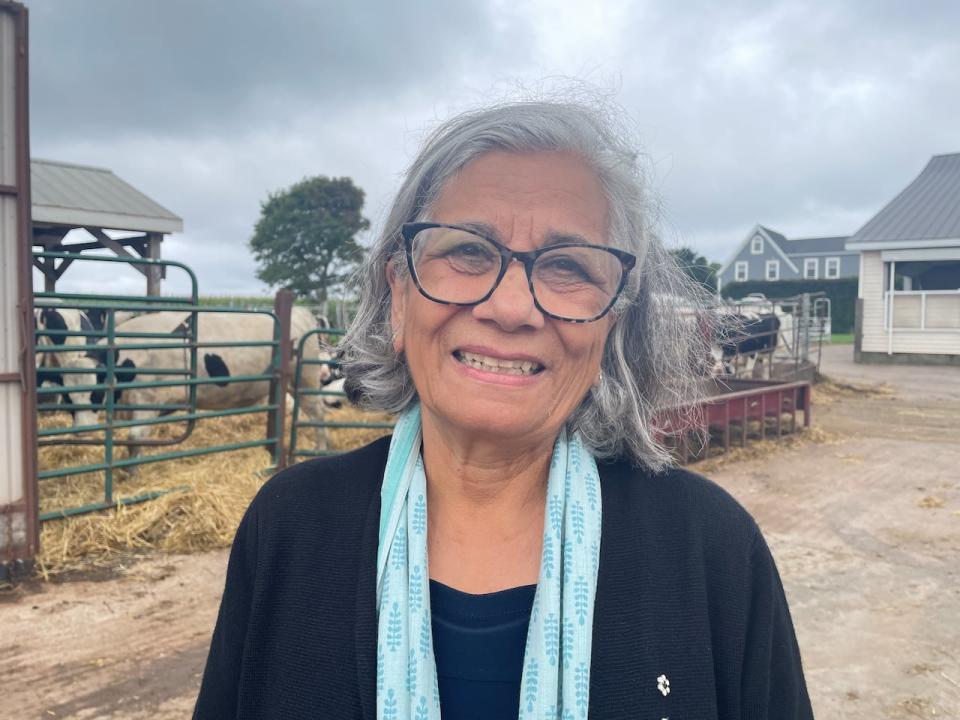Balancing needs of and need for temporary foreign workers focus of senators' farm tour

A group of senators are touring farms on Prince Edward Island to get a clearer picture of the Temporary Foreign Worker Program and ways of improving it.
It's part of a study that launched in November looking at the demands of industries like agriculture and aquaculture and how to balance that with the needs of temporary foreign workers.
"We wanted to see the experience of the workers, what their lives are like, what their issues are, whether it's access to healthcare or housing," said Ratna Omidvar, a senator from Ontario who chairs the committee on social affairs, science and technology
"One thing is clear, the workers need jobs and the employers need workers and so we are here to try and figure out how we can improve the context for both."

'I feel here it's a family,' says worker Edgar Mendoza. 'I'm really welcomed here and ... I think it's good to stay here for [a] long time.' (Sheehan Desjardins/CBC News)
Tiny Acres Holsteins near Miscouche has eight foreign workers, all from the Philippines. They help with jobs ranging from feeding cattle to milking the cows and looking after vet checks.
"It's like we are a family here," said Edgar Mendoza who helps with the cows. "The community is really good. We love each other. We love each other like a family."

'The system at this point does not work so well, either for workers or for employers. We need to keep looking at improvements,' says Ratna Omidvar a senator from Ontario. (Sheehan Desjardins/CBC News)
Mendoza has been working with the operation for seven years but some have been working there for ten. Several have managed to get their permanent residency.
"They can leave at any time. They're not obligated to be here, but obviously, they like their job and they like what they do," said Wade Bryanton who owns the farm.
"It's been a great experience for us and having them on our team has really been helpful. We've become part of their extended family, which is really nice."
Touring the farm
The Senate committee visited the farm on Tuesday. As a group, they learned about how the operation works, the roles of the workers and the needs of the employers.
"What I heard today on this farm — it really struck me — is that people don't leave jobs, they leave people," said Omidvar. "And in this farm, clearly conditions are right because nobody seems to leave this farm. In fact, they're bringing more of their family members.
"When you bring a community of people that are connected to each other, there is the glue."
But that's not the case everywhere.
While allegations of abuse may not be rampant in this country— it does still exist.
There have been cases of people being rescued from P.E.I. farms. In British Columbia, a recent protest called to end the exploitation some workers face. And just last month, a lobster processing plant in New Brunswick was fined $30,000 for failing to protect temporary foreign workers from abuse.
"Our labour market being what it is, we need workers, and many of the farms that we visited would close down without the workers who come from other parts of the world," said Omidvar.
"We have to sort of take the corrective action that is clearly necessary to make it a better context for all."
'Couldn't do it without them'
Next, the senators are planning to visit an organic vegetable producer and a seafood processing plant on the Island. The study will be completed early next year, and the chair expects to make recommendations to the federal government.
"We've seen a variety of industries," said Omidvar, "but there is a commonality. The one commonality that runs through every farm regardless of the type is that without the workers, they would have to close down."
The owner of Tiny Acres Holsteins agrees.
"We couldn't do it without them," said Bryanton. "Everything that happens on this farm, all our successes is not because of us, it's because of them and what they can do."


